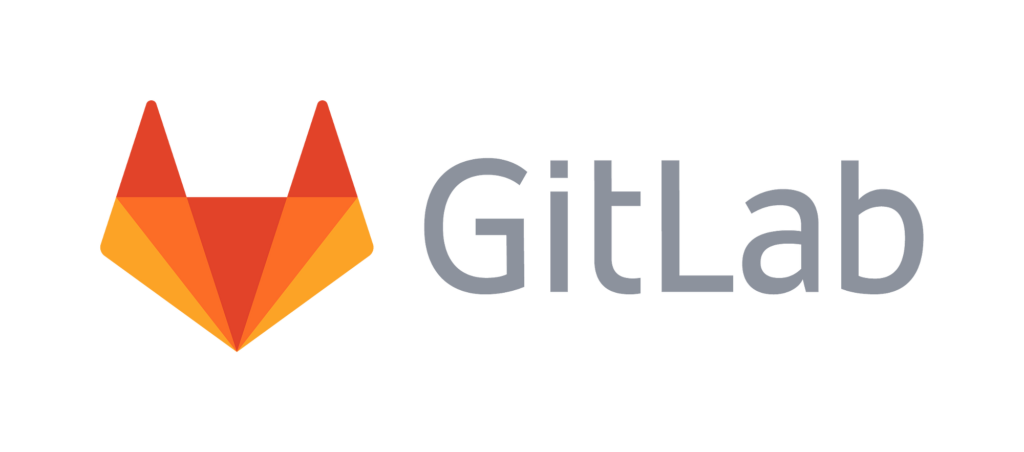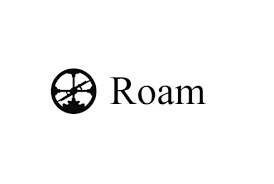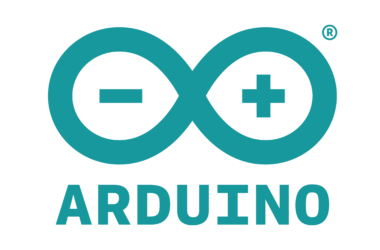In the ever-evolving realm of web development and hosting, Netlify has carved a niche for itself, offering a myriad of features that simplify the deployment process. Developers worldwide leverage its capabilities, making it a go-to platform for hosting static sites. However, like any tool, Netlify has its limitations. In this article, we’ll delve into the features that make Netlify stand out, its limitations, what sets React Netlify apart, and why exploring Netlify alternatives might be a prudent decision.
Exploring Netlify: Features, Limitations, and Unique Aspects
Netlify boasts a range of features that contribute to its popularity among developers.
Netlify’s Features: A Closer Look
- Automatic Deployment: Netlify streamlines the development process with seamless integration with version control systems, enabling automatic deployments through continuous integration.
- Serverless Functions: The platform supports serverless functions, allowing developers to execute backend logic without the need for traditional server setups.
- Custom Domains and SSL Certificates: Netlify provides support for custom domains, allowing developers to establish a branded online presence. SSL certificates ensure secure connections for users.
- Real-time Analytics: Developers benefit from real-time analytics, gaining insights into website performance and user interactions.
- Support for Various Frontend Frameworks: Netlify accommodates a wide range of frontend frameworks, providing flexibility for developers to choose tools that suit their project requirements.
Limitations of Netlify
- Pricing Model for Larger Projects: Netlify’s pricing model may pose limitations for larger projects with high traffic, potentially becoming a bottleneck for scalability.
- Customization Constraints: While user-friendly, Netlify may have limitations for developers seeking highly specific configurations, restricting extensive customization.
- Resource Constraints on Free Tier: The free tier, while generous, may not be suitable for projects with substantial resource requirements, impacting performance.
- Focused on Static Site Hosting: Netlify’s primary focus on static site hosting may limit its suitability for projects requiring more dynamic functionalities.
- Potential for Hidden Costs: Users need to be mindful of potential hidden costs within the pricing structure, especially as projects scale.
React Netlify: Standing Out in the Crowd
React Netlify, an extension of Netlify, caters specifically to projects built using the React framework. Its seamless integration with React applications and enhanced capabilities for deploying React-based projects set it apart. If your focus is on React development, React Netlify might be the ideal choice within the Netlify ecosystem.
Why Seek a Netlify Alternative?

While Netlify serves as a robust solution for many, there are instances where exploring alternatives becomes imperative. Factors such as project scalability, specific customization needs, or budget constraints may prompt developers to seek Netlify alternatives that better align with their requirements.
1. Scalability Concerns
As projects grow and experience increased traffic, developers may encounter limitations in Netlify’s pricing model and available resources. The scalability concerns arise from the potential impact on performance and the ability to handle higher volumes of visitors. Seeking a Netlify alternative hosting solution becomes imperative for those aiming to sustain and optimize their projects’ growth.
2. Specific Customization Needs
Netlify, while user-friendly, might not cater to the highly specific customization needs of certain projects. Developers with unique configuration requirements beyond the capabilities of Netlify may find their creativity constrained. Exploring Netlify alternatives becomes a strategic move to ensure that the hosting solution aligns seamlessly with the intricate specifications and demands of the project.
3. Budget Constraints
The pricing structure of Netlify, although reasonable for many, may not be the most cost-effective solution for projects with tight budget constraints. As development teams strive to manage costs efficiently, exploring Netlify alternatives with competitive pricing or different pricing models becomes essential. Choosing a hosting solution that offers optimal value for the project’s budget ensures financial sustainability throughout the development lifecycle.
4. Dynamic Project Requirements
Netlify’s forte lies in static site hosting, and while it excels in this domain, projects with dynamic requirements may seek Netlify alternatives better suited to their needs. Developers working on applications with diverse functionalities, real-time interactions, or complex backend logic might find a more versatile solution elsewhere. Exploring alternatives ensures that the chosen platform aligns seamlessly with the dynamic nature of the project, accommodating a broader range of functionalities and requirements.
Commonly Used Netlify Alternatives For Web Development

Having gained insights into the pivotal factors guiding our decision, let’s now navigate through a curated selection of commonly used Netlify alternatives. From robust static site hosting to versatile platforms catering to diverse development needs, each alternative brings its distinctive strengths to the forefront. Let’s explore the landscape of hosting solutions, each vying to be the optimal choice for your web development endeavors.
1. Vercel: The Front-runner in Static Site Hosting
Vercel stands out as a formidable Netlify alternative, particularly excelling in the realm of static site hosting. Its claim to fame lies in its user-friendly interface, which significantly streamlines the deployment process. Automatic deployments and instant previews enhance the developer experience, allowing for efficient testing and refinement before the site goes live.
Developers appreciate Vercel’s support for various front-end frameworks, offering versatility for different project requirements. The platform’s global Content Delivery Network (CDN) ensures optimal website performance, delivering content swiftly to users across the globe. Vercel’s commitment to simplicity and speed positions it as a front-runner in the competitive landscape of static site hosting alternatives.
2. Firebase Hosting: A Google-backed Solution
Firebase Hosting, backed by the robust Google Cloud Platform, presents itself as a compelling Netlify alternative with a focus on seamless integration and scalability. Beyond its hosting capabilities, Firebase offers a suite of services that seamlessly work together, including Firestore for databases and Authentication for user management.
What sets Firebase Hosting apart is its real-time updates, making it particularly suitable for dynamic web applications. Developers benefit from the platform’s automatic scaling, ensuring that the application can handle varying levels of traffic without compromising on performance. Firebase Hosting, with its Google-backed infrastructure, provides a comprehensive solution for developers seeking an integrated and scalable Netlify alternative.
3. AWS Amplify: Building Scalable Web Applications
AWS Amplify, hailing from the extensive suite of Amazon Web Services, emerges as a powerful tool for developers aiming to build scalable web applications. The Amplify Console, a central component of the platform, simplifies the deployment process, allowing developers to focus on building features rather than managing infrastructure.
Apart from hosting, AWS Amplify excels in serverless functions, providing a serverless backend for applications. This makes it an attractive option for developers looking to leverage serverless architecture seamlessly. With support for a variety of frontend frameworks, AWS Amplify offers flexibility and scalability for diverse project requirements, making it a strong contender among Netlify alternatives.
4. Heroku: Beyond Dynamic Web Applications
Heroku, recognized for its historical association with dynamic web applications, has expanded its offerings to include static site hosting. The platform’s straightforward deployment process remains a hallmark, attracting developers seeking simplicity in the deployment workflow.
What distinguishes Heroku is its ecosystem of add-ons, allowing developers to enhance their projects with additional services seamlessly. From databases to third-party integrations, Heroku provides a range of options to extend functionality. Developers appreciate the platform’s adaptability, making it a viable alternative for both dynamic and static web applications.
5. DigitalOcean App Platform: PaaS for Simplified Deployment
DigitalOcean’s App Platform, functioning as a platform-as-a-service (PaaS) solution, streamlines the deployment process with a focus on simplicity. Developers benefit from an intuitive interface that simplifies configuration and deployment, reducing the learning curve associated with deploying web applications.
Beyond static site hosting, DigitalOcean App Platform supports automatic scaling, ensuring that applications can handle varying levels of traffic efficiently. The platform integrates seamlessly with other DigitalOcean services, providing developers with an all-in-one solution for hosting and managing their projects. DigitalOcean App Platform’s simplicity and versatility position it as a compelling Netlify alternative for those seeking a hassle-free deployment experience.
6. GitHub Pages: Seamless Integration with Version Control
GitHub Pages is an attractive Netlify alternative, particularly for projects hosted on GitHub. Its seamless integration with version control simplifies the deployment process, making it a convenient choice for developers already immersed in the GitHub ecosystem. GitHub Pages automatically builds and deploys directly from the repository, reducing the manual steps involved in publishing static sites.
Developers appreciate the platform’s straightforward setup and its ability to host project documentation alongside the actual codebase. GitHub Pages stand out as a user-friendly Netlify alternative, especially for open-source projects looking for an uncomplicated hosting solution.
7. Bitbucket Pipelines: CI/CD for Bitbucket Users
Bitbucket Pipelines caters to Bitbucket users, offering continuous integration and deployment capabilities. While primarily recognized for dynamic applications, it supports static site hosting as well, providing a comprehensive solution within the Bitbucket environment.
Developers leveraging Bitbucket Pipelines benefit from its seamless integration with Bitbucket repositories, facilitating an efficient workflow. The platform’s CI/CD capabilities enhance the development process, ensuring that changes are automatically tested and deployed. Bitbucket Pipelines stands as a practical Netlify alternative for those deeply embedded in the Bitbucket version control system.
8. Render: Cloud Platform for Diverse Services
Render positions itself as a comprehensive cloud platform, offering a range of services beyond static site hosting. Its emphasis on simplifying deployment and scaling makes it an attractive alternative to Netlify. Render’s approach extends beyond hosting, encompassing databases, web services, and more.
Developers appreciate the platform’s user-friendly interface and the ability to deploy various services with ease. Render’s comprehensive nature, covering a spectrum of development needs, positions it as a robust alternative for those seeking an all-in-one solution for their projects.
9. Surge: Command-line Simplicity for Static Content
Surge distinguishes itself with its simplicity, offering developers a command-line interface for publishing static web content. The platform’s minimal configuration requirements and swift deployment process make it an efficient Netlify alternative for those prioritizing simplicity and speed.
Developers leveraging Surge appreciate its focus on static content, streamlining the deployment process without unnecessary complexities. Whether it’s a personal portfolio or a simple static site, Surge provides a quick and straightforward solution for publishing content on the web.
10. GitLab Pages: Version Control Hosting for GitLab Projects
GitLab Pages, akin to GitHub Pages, is designed specifically for hosting static sites directly from GitLab repositories. This alternative caters to developers already utilizing GitLab for version control, offering seamless integration for a streamlined deployment process.
Developers leveraging GitLab Pages benefit from the platform’s version control hosting, allowing them to host documentation, project websites, or any static content associated with their GitLab repositories. The platform’s integration with GitLab’s broader ecosystem makes it a convenient choice for those deeply invested in GitLab for version control and project management.
Factors To Consider While Choosing The Perfect Netlify Alternative

As we embark on the journey of discovering the perfect hosting solution beyond Netlify, it’s essential to delve into the critical factors that will shape our decision-making process. Understanding and evaluating these considerations will not only shed light on the unique needs of your project but also empower you to make an informed choice that aligns seamlessly with your development goals.
1. Scalability and Traffic Handling
When considering a Netlify alternative, scalability is a crucial factor that can significantly impact the long-term success of your project. The ability of the hosting service to scale seamlessly as your project grows in complexity and attracts higher levels of web traffic is paramount. Look for alternatives that not only meet your current needs but also provide room for expansion without compromising on performance.
A hosting solution with robust scalability ensures that your website or application can handle increased user interactions, page views, and data without experiencing slowdowns or downtime. This is particularly important if you anticipate growth or if your project experiences periodic traffic spikes. Assessing the scalability features of each Netlify alternative ensures that you’re making a choice aligned with the future trajectory of your web development endeavors.
2. Customization Options
The level of customization offered by a hosting alternative is a pivotal consideration, especially for projects with specific configuration needs. A one-size-fits-all solution may not be suitable for developers aiming to fine-tune settings and adapt the hosting environment to meet their project’s unique requirements.
Evaluate the customization options provided by each Netlify alternative, considering factors such as server configurations, deployment processes, and the ability to integrate with third-party services. A hosting solution that offers a high degree of customization empowers developers to tailor the environment to suit the intricacies of their projects, fostering a more personalized and efficient development experience.
3. Budget Considerations
While exploring Netlify alternatives, it’s essential to carefully evaluate the pricing models to ensure they align with your budget constraints. While some platforms offer enticing free tiers, it’s crucial to delve into the details and consider the long-term costs associated with your project’s growth.
Hidden costs can sometimes emerge as projects scale, making it imperative to choose a solution that not only fits your current budget but also provides transparency about potential future expenses. A thoughtful analysis of the pricing structure ensures that your chosen hosting alternative not only meets your financial requirements but also delivers optimal value for the investment.
4. Integration with Development Stack
Seamless integration with your existing development stack is a key factor in choosing the perfect Netlify alternative. Consider the programming languages, frameworks, and tools your team is comfortable using, and ensure that the hosting solution supports this stack effortlessly.
A well-integrated solution streamlines your workflow, reducing the learning curve and enabling developers to focus on coding rather than grappling with compatibility issues. Look for alternatives that complement your tech stack, enhancing the overall development experience and facilitating a cohesive collaboration among team members.
5. Support and Community
The level of support provided by a hosting service and the size of its community can significantly impact your development journey. A robust support system ensures that you have access to assistance when troubleshooting issues or seeking guidance on best practices. Explore each alternative’s support offerings, including documentation, help centers, and direct customer support channels.
An active community surrounding a hosting solution can be an invaluable resource for developers. Community forums, discussion boards, and online communities provide a platform for sharing experiences, tips, and solutions to common challenges. Consider the level of support and the vibrancy of the community when evaluating Netlify alternatives to ensure a supportive ecosystem for your development endeavors.
Conclusion
In the dynamic landscape of web development, choosing the right hosting solution is paramount. While Netlify excels in many aspects, exploring alternatives can uncover options that better suit your specific needs. Whether it’s the scalability of Vercel, the customization options of AWS Amplify, or the vibrant community of GitHub Pages, each alternative brings its unique strengths to the table. Consider your project requirements, scalability needs, and budget constraints to make an informed decision and propel your web development journey.









